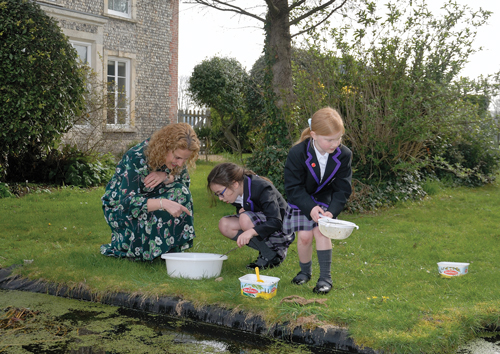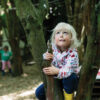
by Mrs Sarah Bakhtiari
Principal of Shoreham College
Some people appear to have a naturally positive personality, gliding through the ups and downs of life more easily than most; their glass is half full, their outlook is full of optimism. What if those of us who are not naturally quite so positive, perhaps our glass is half empty, could grow the positive parts of our personality? What if we could help our children and young people to do the same?
Studies show that positive people perform better under pressure, have better concentration and can cope with uncertainty. Optimism has a positive impact on wellbeing and positive people also tend to report greater levels of happiness. This article will explore some of the ways that we can encourage children and young people to grow their positive outlook, reaping benefits for their mental health and wellbeing.
How we think, how we feel and how we behave are all closely aligned with our brain’s interpretation of events which in turn fuels our emotions and behaviours. The situation itself is less important in determining how we feel, more important is the way we view that situation. “There is nothing either good or bad, but thinking makes it so” as Shakespeare said, in Hamlet.
So, how can we help children and young people to develop a more positive outlook?
Expressing feelings
It is normal for us to experience a range of feelings and emotions, from happiness to sadness to anxiety and anger. Encourage your child to speak about how they feel and help them to understand that these feelings pass: “So I may have missed the ball, but everyone misses sometimes and I did the best I could” replaces “I never catch the ball, I’m not playing that again”. Maya Angelou is quoted as saying “Do the best you can until you know better, then do better” and her wisdom applies to sports and friendships and exams and well, actually to everything – even parenting, perhaps especially parenting!
Helping others
Doing things for others helps us to feel better about ourselves and grows our positive outlook. Encourage your child to help others, in a way that is enjoyable for them. Perhaps they could bake a cake for someone who needs cheering up, or help a sibling with their homework or show their kindness in the playground. There are many ways to help and the feel-good factor from helping others will fuel your child’s positivity. It helps them to understand that they, and their actions, can make a positive difference.
The power of ‘wow’ Encourage your child to record ‘wow’ moments – perhaps in a journal, perhaps in a scrapbook – whatever works for them, moments from their daily life that they find beautiful or extraordinary. It could be a kind act, it could be a crazy cloud formation in the sky, or the family pet doing something silly. Whatever it is, it will mean something to them and when they look back at the ‘wow’ moments, they will feel uplifted and positive.
Self-talk
How we talk to ourselves can have a significant impact on how we live our life: “Whether you think you can, or you think you can’t, you’re right.” (Henry Ford). Help your child to practise noticing their self-talk. A really good way to help grow positive self-talk is to think of someone warm and compassionate who your child admires. It might be a teacher, a cousin, a coach or simply someone they look up to. Then think what that person would say to them instead, so for example“of course I always fail” becomes“I might still have a way to go, but I’m proud of how far I have come.”
Schools play an important role in supporting children and young people’s wellbeing and positivity. From celebrating children for the unique individual that they are, to knowing and listening carefully to them, to developing activities that encourage children to be active and enjoy the world around them. There is plenty of support. Small activities can have a significant impact on positivity, thereby building the resilience which leads to success. Pond-dipping with our Year 3s recently, I was struck by how the activity worked on so many levels – there was ‘wow’ – the children discovered a ‘mini beast’ (a newt!) named it Wiggle Squiggle and created a narrative about the mini beast, which they excitedly worked together to develop. They helped each other by sharing nets and magnifying lenses, they expressed their feelings and reflected how those feelings changed (some were initially not so keen on Wiggle Squiggle, but through dialogue began to see the newt for the fascinating little creature that it was). A charming activity which our children so enjoyed, and which works on so many levels – from an appreciation of our natural habitat to collaboration and reflection.
Not all schools are lucky enough to have a pond or forest school, but every school will work cleverly with the resources they do have, and every school will welcome a dialogue with parents about their child. I hope I have given you some ideas that you could try with your child to help grow their positivity. Perhaps you have already tried these and are looking for more specialist help? If this is the case I encourage you to speak to your child’s school, or your GP, for additional sources of support.
Shoreham College, like many independent schools, has been offering continuity of education for its pupils and their families for generations. Established in 1842, as a grammar school, where pupils were “liberally boarded and carefully educated.” Shoreham College is proud of its traditions and proud of the many and varied achievements of pupils.Whilst the Shoreham College of today is most definitely a day school, the forward thinking liberal culture of its founders continues to resonate.
www.shorehamcollege.co.uk











